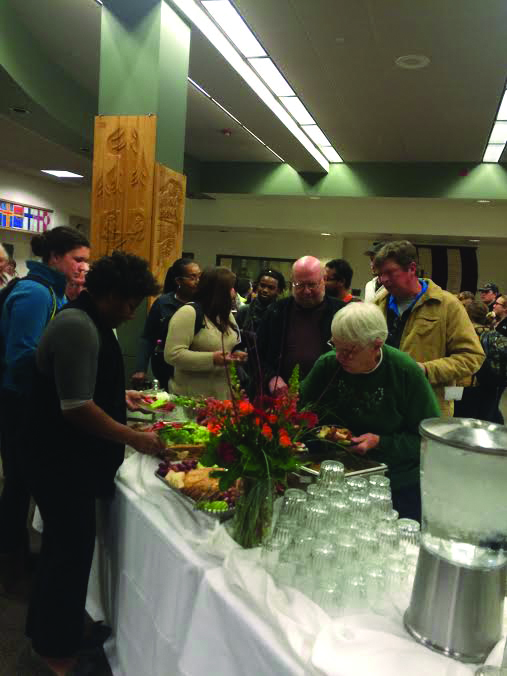by Samantha Lund, News Editor
Measles is making its way across the country and the Pacific Lutheran University Health Center is getting ready for the possibility of it coming into Lute territory.
The students who stand to lose the most in a measles outbreak are those not vaccinated. Even if they do not catch the virus, unvaccinated students could be asked to leave campus and put their education on pause for undetermined amount of time.
PLU is a small community that contains a handful of unvaccinated people, director of the Health Center, Sudana Doll said.
Measles is one of the fastest spreading viruses. Since Jan. 1, 141 new cases of measles have been reported in the US. According to the Center for Disease Control (CDC) measles was eradicated in 2000. Since then, there have been a couple small outbreaks each year, most of which did not have more than 100 cases.
In 2014, that number skyrocketed and the U.S. experienced 23 measles outbreaks including one large outbreak of 383 cases.
This year, the measles are a very real threat to people’s health. With two outbreaks already occurring, the U.S. government is urging people to get vaccinated.
The majority of people who contract measles are not vaccinated and catch the virus easily. Vaccination is the only way to be protected, and even then, vaccines sometimes do not work.
“The vaccination is very effective, there are very few people who have gotten the infection who have been vaccinated,” Doll said. “But it always lowers the severity of the symptoms. When young people get the vaccination, it is very effective.”
Since January, there have been cases of measles at Eastern Washington University. College students are contracting the virus because they are not vaccinated and the virus spreads quickly.
When an outbreak of measles occurs and someone contracts the virus, they can infect rooms they are in. Those rooms will stay infected for up to two hours and other people can catch measles by going into the room.
Though the measles virus does not show signs or symptoms for the first several days the carrier is still contagious. If a carrier of measles walks through a room, they could leave the room contagious hours after they leave.
“If someone came into an exam room here with measles, that room would be infected for at least an hour,” Doll said. “It would have to be sectioned off because if anyone goes in there they could get it.”
Measles infect the body in the form of a fever, skin rash and a cough. Other symptoms include red eyes, sore throat and a running nose.
Most children in the U.S. get their first vaccination at one year old and their second when they are four years old.
There are some people who choose not to be vaccinated in the U.S. because of religious or medical preferences.
Some countries do not vaccinate as regularly, leaving children and adults susceptible to the measles.
PLU has a small population of students on campus who are not vaccinated. Now that the measles is spreading, Doll is concerned for those students.
When a student is accepted to PLU and chooses to attend, the Health Center gets their records, including vaccinations.
Students who do not have their Measles Mumps and Rubella (MMR) vaccine have to sign a waiver before coming to campus.
When they sign the waiver, students agree to leave campus if or when an outbreak occurs.
In the event of a measles outbreak on or near campus, those select students will be asked to leave campus and not return until the Health Center says there is no more risk for measles.
Students asked to leave campus because of the virus could be gone for many weeks and essentially miss an entire semester, putting their education on hold.
If students on campus are not vaccinated with the MMR shot and would like to be, the Health Center has the vaccine.
“Many times international students come here without immunizations and the first thing they do is get their MMR,” Doll said. “We’ve got a list of the students who have decided not to and we can call them up whenever.”
The measles outbreak touched PLU students recently. In December, two students were aboard a flight from California with someone who was infected.
PLU was contacted by the airline and informed that the students may have been in contact with a family infected. The students had been vaccinated and were not quarantined.



















